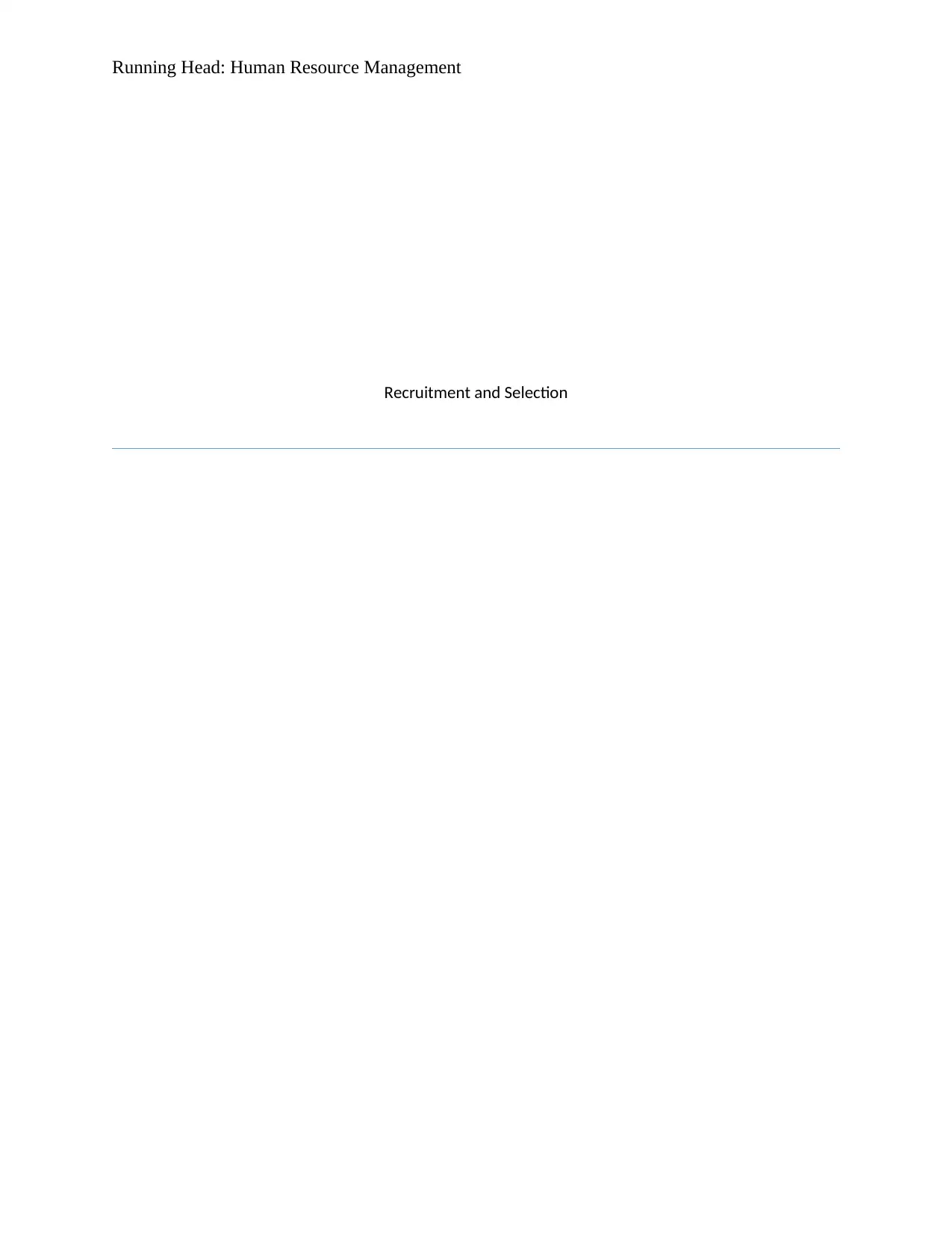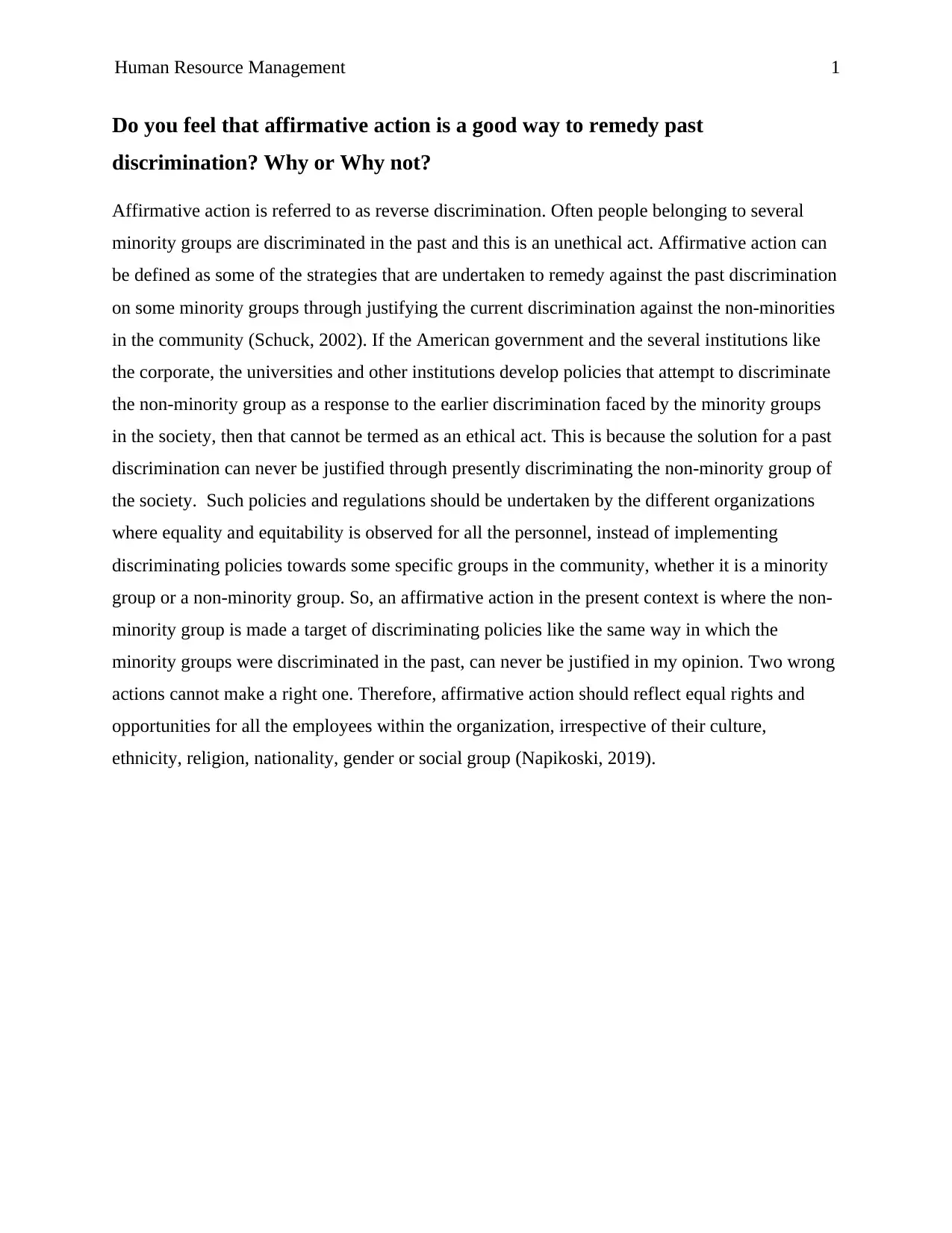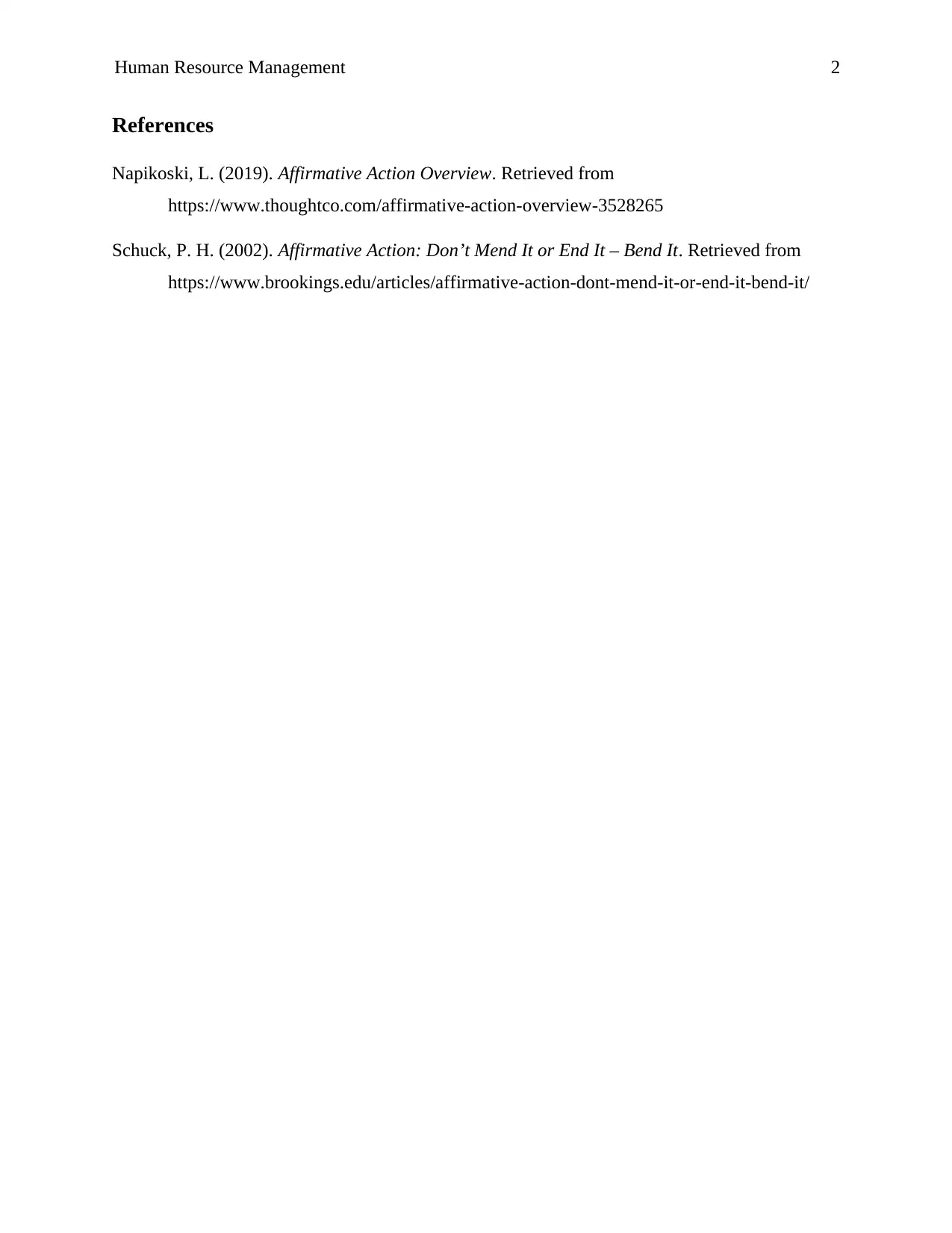Affirmative Action and Discrimination in HRM: A Case Study
VerifiedAdded on 2019/09/30
|3
|361
|157
Homework Assignment
AI Summary
This assignment delves into the concept of affirmative action within the realm of Human Resource Management (HRM). It explores how affirmative action policies, aimed at rectifying past discrimination against minority groups, can be perceived as a form of reverse discrimination. The assignment argues against the ethical implications of such policies, asserting that discriminating against non-minority groups to address past injustices is not justifiable. It emphasizes the importance of establishing equal rights and opportunities for all employees, regardless of their cultural background, ethnicity, religion, nationality, gender, or social group. The assignment provides a critical analysis of the topic, referencing relevant sources to support its arguments and provides a comprehensive perspective on ethical considerations within the context of HRM and recruitment.
1 out of 3










![[object Object]](/_next/static/media/star-bottom.7253800d.svg)